Labs Method statement
YouGovLabs research is anecdotal, with polls being open to all panellists who wish to take part. In contrast to YouGov’s Public Opinion polling, YouGovLabs seeks to understand the attitudes of specific subsets of people: sports fans tell us how they feel about sports and music fans tell us how they feel about music, for example. YouGovLabs results are unweighted, and figures reported do not reflect the attitudes of the population as a whole
What do you feel constitutes enduring and effective political leadership?
This was the question we asked in a recent survey ‒ the sample of which was made up of respondents who were interested in the topic and agreed to take part by coming to the YouGovLabs website.
Pressure on politicians to harness such capabilities has been visible in recent times, both from one politician to another, and the public to those in office. The still-protesting Occupy London movement next to St Paul’s Cathedral has embodied the public mood of some, as have recurrent protests against spending cuts; while pressure among politicians has seemed evident in David Cameron’s recent calls for euro-zone leaders to take a ‘big bazooka approach’, along with the 81 MPs who voted in favour of a referendum on Britain’s EU membership, in defiance of the PM’s three-line whip.
We asked PoliticsLab respondents to give their nominations for two titles.
- The first, for the politician from history they saw as the greatest political role model for society
- And the second for their antithesis – the worst political role model – and to give their reasons for choosing these politicians.
The positive qualities highlighted by the responses to this PoliticsLab have been pooled together below, to arrive at a vision of a ‘dream cabinet’ – that we have dubbed ‘The Cabinet of Political Might’. Here, all manner of attributes, from foresight and fortitude, to intelligence and integrity come together, to point towards the character of politics that these panellists feel would lead Britain through today.
Some politicians in our unweighted, open-panel exercise were nominated in both categories, and we have looked at these opinion-splitters by considering the broad range of comments given.
By comparing the two sets of role model qualities we can get a real sense of where these panellists found disparities. For example, the politicians featuring in our respondents’ ‘Cabinet of Political Might’ have been heralded for bringing ‘real change’ to society; as the historic ‘Fathers’ of freedom and social justice; as protectors of the nation and of the most vulnerable.
When it came to speeches, many panellists’ views conflicted: while the great-and-good’s delivery of speeches have been lauded in the responses as powerful yet sincere, most reflections we received on the powerful oratory of the modern politician suggested that these speeches offer little more than rhetoric and spin.

What do you make of these nominations, and the positive and negative leadership qualities that last week’s PoliticsLab respondents flagged up?
Do you agree or disagree with what has been said by those who took part? Perhaps you’d side with the stance of one PoliticsLab respondent that ‘even the best politicians will eventually exhibit catastrophic flaws under the extreme pressure, fire and adversity to which they are subjected’ – and as such are doomed to failure?
Whatever your stance, why not scroll down to our Disqus comments section to add to the discussion?

The CABINET OF QUALITIES OF POLITICAL MIGHT, as submitted by PoliticsLab respondents
SIR WINSTON CHURCHILL
(Coalition Prime Minister, 1940-1945; 1951-1955)
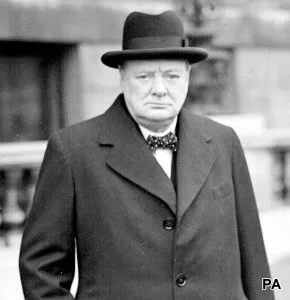
A tireless protector of British freedom in WW2; a rousing yet unmannered orator; fiercely intelligent and true – these, and the other reasons listed below give an idea of the sheer range of qualities that set Churchill on another plain as a political leader in the panellists’ view:
“He has shown more courage than the current leaders, he worked tirelessly to be victorious”
“A patriot”
“Great man, fantastic spirit and true to his words”
“Leadership, moral honesty, application to the prime task at hand, inspirational to all and globally respected”
“A man who achieved in life, developed in life and experienced life before he became a politician. He didn't go straight from university to a political research job then to MP”
“A giant of a man in any arena”
“He was able to galvanize a country in the greatest adversity and bring it through as a stronger unit”
“Bulldog spirit and a visionary”
“He was the right person at the right time and helped change the course of history for the better”
“He showed flexibility in his views and was not constrained by the dogma of a particular political party”
“Stuck to his principles, honest and trustworthy, powerful rhetoric, family man - he never had affairs"
“Bold, powerful, well-read, well-educated, hard-working, witty. Not afraid to speak his mind. Good knowledge of history and world affairs”
“Wouldn’t have won the war without him"
ANEURIN 'NYE' BEVAN
(Deputy Leader of the Labour Party, 1959-1960)
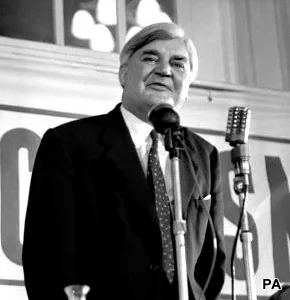
“Created the finest 'public service' ever”
“Came from a mining family to become a great man who gave us the welfare state and the NHS”
“The health service is the greatest thing ever created by parliament”
“Visionary, beyond corruption, delivered massive social change”
“Despite the country being in a perilous economic state after the Second World War, he pushed through the NHS which has been the greatest achievement of this country and the biggest benefit for most”
“Brilliant hard-working inspiration”
“The NHS was/is a great example of a system that works without the need to trample over each other, without the need to do other people down, without the need to grab as much as you can and stuff everyone else. We could build a whole society like this and Aneurin Bevan believed and fought for that”
“The creator of the best thing in Great Britain … I don’t know what he would think now because it is in such a mess”
JOHN SMITH
(Labour Party leader, 1992-1994)
“He was a man who had strength of character and a purpose in his life to do his best"
"Trustworthy, upstanding, nice, everything a politician should be without question”
“Straight forward, a supporter of working people and unpretentious”
“Absolutely honest and with a strong Christian faith”
CLEMENT ATTLEE
(Labour Prime Minister, 1945-1951)
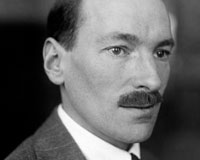 "Quiet leadership, integrity and lack of ego”
"Quiet leadership, integrity and lack of ego”
"Discreet and made huge social changes"
"He inherited a broken country far worse than now but his government still … got the country going by nationalisation with the profits going to help the country. I doubt if he had any love for our arrogant bankers either"
"Worked to close the gap between the poor and the rich"
DAVID LLOYD GEORGE
(Liberal Prime Minister, 1916-1922)
"In my view one of our greatest Prime Ministers"
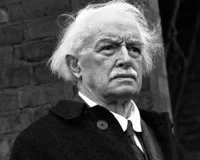
"For challenging the views of the generals in the First World War ... For understanding the horror the troops would face"
"A man of principle rather than a weather cock"
"He introduced benefits such as old age pensions for the ordinary people of this country, despite strong opposition from the Tories"
WILLIAM GLADSTONE
(intermittent Liberal Prime Minister, 1868–1894)
"Great reforming politician who put country before party and career"
"He was tolerant and tried to help all the community"
"He was outstanding in so many ways, he led this country as Prime Minister 4 times, he built up a successful economy, country and empire"
"His political career consisted of continual striving to do the moral thing"
BENJAMIN DISRAELI
(Conservative Prime Minister, 27 Feb 1868 – 1 December 1868; 1874-1880)
"Standing over the greatest period of public discipline, success through hardwork and good citizenship and entrepreneurship in British History. Got Great Britain working as a team"
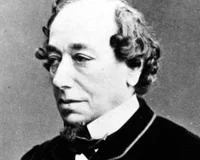
"Succeeded despite being a Jew at a time when society was very class and race conscious"
"He looked after the poor … an honest man"
Divided opinion
Beyond this ‘dream’ cabinet, PoliticsLab respondents were clearly divided in their views of prolific modern-day politicians. But on what grounds? There was a strong sense from comments within PoliticsLab that a politician and the policy they drive through are one and the same. The degree to which a policy had impacted on personal experience inevitably coloured some responses.
Margaret Thatcher
(Conservative Prime Minister, 1979-1990)
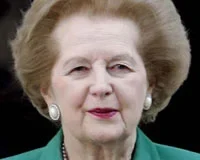
To many of our respondents, Thatcher was a bastion of political leadership for her clarity of sight in "dragging Britain into the 20th century". To others, this same determination to ‘modernise’, with its impact on the industrial north, still resonates painfully:
| "She had the tenacity, the courage and the common sense to know what was right for the country”"A powerful and charismatic leader who put the great in Britain""Put the country's needs before her political future”“Compassion without being a false tear jerker, she managed to stop the politicians prevaricating long enough to achieve some real results""Dragged Britain into the 20th century""Broke new ground, first woman""She gave hope to the bulk of the population when all seemed broken and mired in class-war. She enthused the people … that things did not have to always be done the same old ways." "She didn't dither - whether right or wrong. She went for it" | |
|---|---|
|
|
|
|
Tony Blair
(Labour Prime Minister 1997-2007)
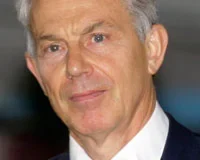
For Blair, the trigger-points dividing opinion within the PoliticsLab respondents were more numerous. Style and charisma was strongly bound-up in much of respondents’ talk of Blair, although they were split over his ‘substance’ as a politician, particularly concerning his governance around the Iraq war and the ‘special relationship’ with America:
| "Strong leader” “Only one I’ve trusted when in power”“Did a lot of good”“He delivered the government that shaped our society for the better. Sure people look at the Iraq war, but I see him getting rid of Saddam – looking at the Arab spring – it’s what people wanted and Tony Blair changed the way families operate. It’s dark times when the Tories reverse this”“He achieved a great deal while enduring constant and most often baseless attacks from the opposition and media, and did more good than bad” | |
|---|---|
|
|
|
|
There was perhaps a case of the Tony Blair-Gordon Brown divide among our PoliticsLab respondents.
Gordon Brown
(Labour Prime Minister, 2007-2010)
In their responses, panellists tended to hone in on Brown’s transition from Chancellor to Prime Minster following Blair’s departure in 2007. Conflict in the comments made by respondents who nominated Brown centred on whether Brown was to blame for the culmination of behaviours and policies which led to the credit crunch, or should be praised for his swift gathering of the G20 to kick-start a resolution.
| “There may well be a better politician in history than Gordon for doing the best for the people at this particular time but times change. We need a politician who is in touch with the needs of this country in the 21st century, which at the present time would be Gordon Brown” “He is decent, honest and trustworthy and really does have the people’s interests at heart" | |
|---|---|
|
|
|
|
David Cameron
(Prime Minister, 2010-present)
Now 18-months into Government, Cameron and Clegg also had a mixed reception from the PoliticsLab respondents. In the negative camp, Cameron’s background, his education, and a feeling that he favours the wealthy, all contributed to finding the PM ‘out-of-touch’ with the ordinary struggling voter. By contrast, the respondents who felt Cameron to be a good role model saw echoes of Thatcher in his immovability of vision:
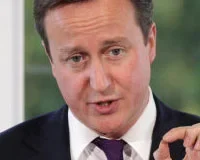
| "Genuine, strong and decisive. Not easily flappable. Just gets on with what he thinks he has to do. Appears calm, collected and statesman like" | |
|---|---|
|
|
| "A millionaire preaching to the unemployed and pensioners that we are ‘all in it together’. He has no idea what it is like to choose between food and heating" |
Nick Clegg
(Deputy Prime Minister, 2010-present)
Clegg's actions in coming to power still smart with some in PoliticsLab, who condemn the Liberal Democrat leader for acting ‘kingmaker’ in the formation of a Conservative-led coalition, and U-turning on policy. Yet, in terms of political ideology, to other respondents Clegg embodies a positive force:
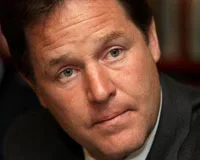
| "He is liberal, and liberalism is the way forward. Conservatism is a massive contradiction supported by the rich who believe the poor are in the gutter due to their own fault, it’s not their own fault in most cases, it’s the capitalist system" | |
|---|---|
|
|
| "Dropped all his principles for just 40 pieces of silver" |
Lastly, two living politicians were notably commended by respondents for their admirable and undesirable political leadership qualities, including integrity and firmness:
Tony Benn
(Former Labour Secretary of State, 1963-1970; 1974-79)
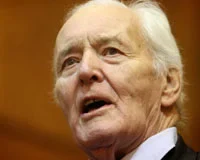
“Stayed true to his beliefs”
“I actually oppose entirely most of his political and social policies, but as a man and politician it's hard to fault his integrity.”
"A great speaker against the inequalities in society"
"Last of the honest politicians"
"Gave up his peerage; a man of principle; prepared to be unpopular"
Alex Salmond
(Scottish First Minister, 2007-present)
"He has shown that if you believe in something, despite all odds and in the face of adversity, you can achieve it"
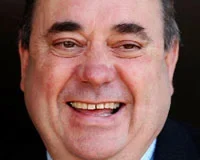
"The consummate politician, can lead and motivate his team and his country, can outdebate anyone and has followed his conscience with regard to illegal wars, charging for education and saying no to nuclear"
All images credited to the Press Association
Labs Method statement
YouGovLabs research is anecdotal, with polls being open to all panellists who wish to take part. In contrast to YouGov’s Public Opinion polling, YouGovLabs seeks to understand the attitudes of specific subsets of people: sports fans tell us how they feel about sports and music fans tell us how they feel about music, for example. YouGovLabs results are unweighted, and figures reported do not reflect the attitudes of the population as a whole








